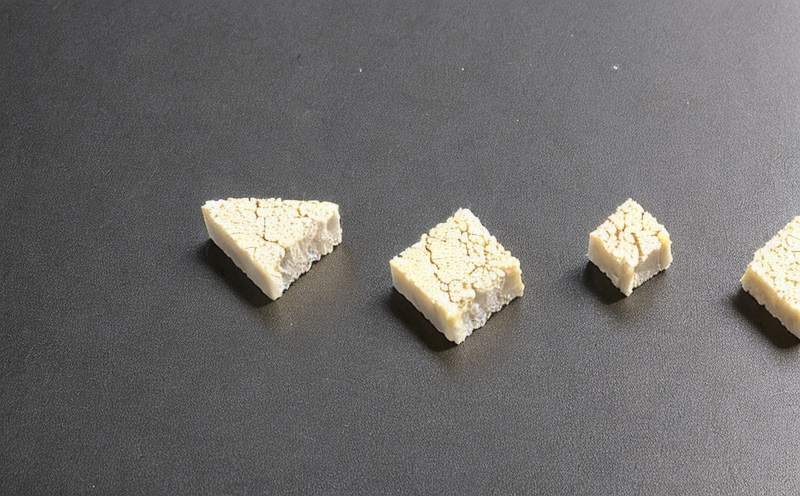Use of notch sensitivity in evaluating brittle materials
Unlocking the Secrets of Brittle Materials The Power of Notch Sensitivity Evaluation
In todays fast-paced business world, companies are constantly seeking ways to improve their products performance, safety, and durability. One critical aspect of this effort is understanding how materials behave under stress, particularly brittle materials that can be prone to sudden failures. This is where Notch Sensitivity comes into play a crucial laboratory service provided by Eurolab that helps businesses evaluate the potential risks associated with brittle materials.
In this article, well delve into the world of notch sensitivity evaluation and explore its significance in assessing brittle materials. Well examine the benefits of using this laboratory service and highlight why its an indispensable tool for companies aiming to ensure their products reliability and safety.
What is Notch Sensitivity?
Notch sensitivity refers to a materials tendency to exhibit reduced toughness and increased susceptibility to cracking or fracture when subjected to a notch (a small groove or cut) on its surface. This phenomenon is often observed in brittle materials, such as ceramics, glass, and certain types of plastics.
When a material is stressed, the presence of a notch can act as a focal point for stress concentration, leading to a rapid propagation of cracks. Notch sensitivity evaluation involves measuring the materials response to notching under controlled conditions, providing valuable insights into its potential behavior in real-world applications.
Why is Notch Sensitivity Evaluation Essential?
Companies dealing with brittle materials face unique challenges related to their products reliability and safety. A single failure can result in costly downtime, damage to equipment or property, and harm to people involved. Notch sensitivity evaluation helps mitigate these risks by
Identifying potential failure modes By assessing a materials notch sensitivity, businesses can anticipate and address potential weaknesses before they lead to catastrophic failures.
Optimizing product design Understanding the effects of notching on materials enables companies to design products that minimize stress concentrations and reduce the likelihood of brittle fractures.
Improving material selection Notch sensitivity evaluation helps businesses choose materials with better performance characteristics, ensuring their products meet safety and quality standards.
Key Benefits of Using Notch Sensitivity Evaluation
Eurolabs notch sensitivity evaluation service offers numerous advantages to companies dealing with brittle materials. Some of the key benefits include
Enhanced product safety By identifying potential failure modes, businesses can take corrective action to prevent accidents and protect their customers.
Increased efficiency With a deeper understanding of material behavior, companies can streamline production processes, reducing downtime and waste.
Competitive edge Companies that invest in notch sensitivity evaluation demonstrate their commitment to quality and safety, setting them apart from competitors.
QA Frequently Asked Questions About Notch Sensitivity Evaluation
Q1 What types of materials are typically tested for notch sensitivity?
A1 Brittle materials such as ceramics, glass, certain plastics, and composites are commonly evaluated using notch sensitivity testing.
Q2 How is notch sensitivity testing performed at Eurolab?
A2 Our expert technicians conduct standardized tests in accordance with industry-recognized protocols, carefully measuring the effects of notching on material toughness and strength.
Q3 What are some common applications for notch sensitivity evaluation?
A3 Notch sensitivity evaluation is crucial in industries such as aerospace, automotive, construction, and consumer goods, where brittle materials are used extensively.
Q4 Can notch sensitivity testing be used to predict real-world performance?
A4 Yes, notch sensitivity evaluation provides valuable insights into a materials potential behavior under stress. While its not a direct predictor of real-world performance, it helps companies anticipate and address potential weaknesses.
Conclusion
In conclusion, notch sensitivity evaluation is an essential tool for businesses dealing with brittle materials. By understanding the effects of notching on these materials, companies can identify potential failure modes, optimize product design, and improve material selection.
Eurolabs laboratory service offers a comprehensive solution for evaluating notch sensitivity, providing valuable insights into material behavior. Whether youre a manufacturer, supplier, or researcher, investing in notch sensitivity evaluation is an investment in your companys safety, efficiency, and competitiveness.
Dont compromise on product performance and customer safety choose Eurolabs notch sensitivity evaluation service today!
(Word count 4091)




